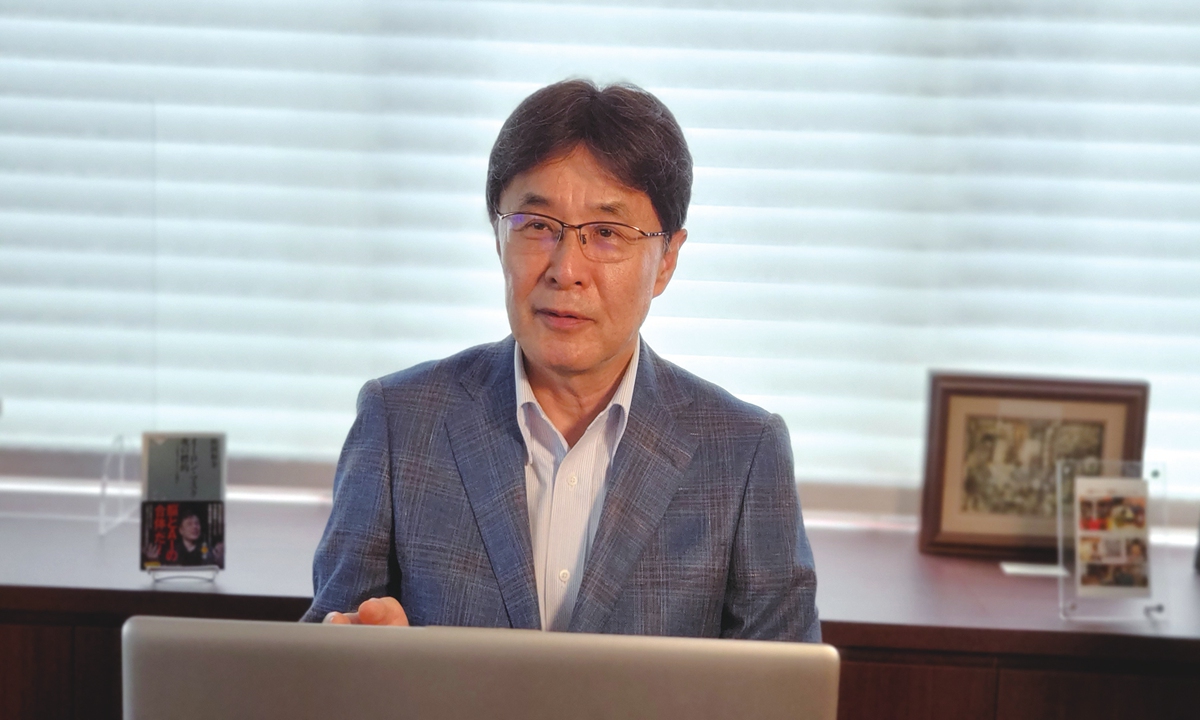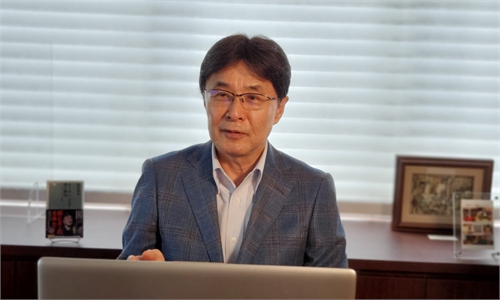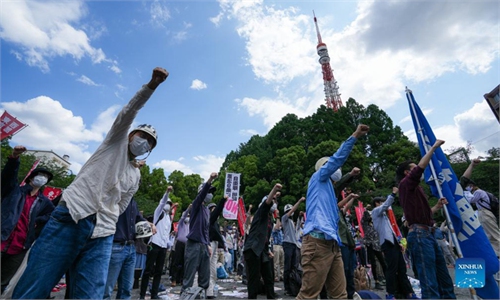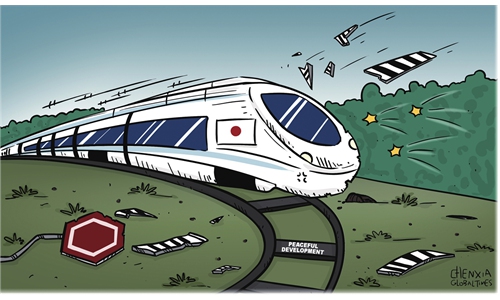Japan's advocacy of ‘Asian NATO’ is nothing more than going against the post-Cold War era: Japanese scholar

Kazuyuki Hamada Photo: Courtesy of Hamada
Editor's Note:
Japanese Prime Minister Fumio Kishida was confirmed to attend the North Atlantic Treaty Organization (NATO) Summit slated for late June in Spain, which would make him the first Japanese leader to take part in a gathering of the military alliance. The plan has triggered concerns from Asian countries. Will there be a trend of an "Asian NATO" in the future? What is Japan's role in the NATO summit? Global Times (GT) reporter Xu Yelu talked to Kazuyuki Hamada (Hamada), President of Research Institute for Future Technologies and former Parliamentary Vice Minister for Foreign Affairs, over these issues as well as the challenges and opportunities in China-Japan relations.
GT: Biden and Kishida announced the launch of the Indo-Pacific Economic Framework for Prosperity (IPEF) during their May 23 meeting in Tokyo. What role does Japan play in the US-led IPEF? We noticed that many Japanese citizens protested against Biden's visit, what is your understanding about that?
Hamada: President Biden set out the IPEF on his recent visit to Japan, rather than returning to the TPP (Trans-Pacific Partnership) or joining the RCEP (Regional Comprehensive Economic Partnership). However, expectations and anxieties about the leadership and economic power of the US are mixed, so it was Japan that led 13 countries including India and Southeast Asian countries to participate. The US advocated the IPEF with the intention of holding down China not only in terms of military affairs but also in terms of the economic power that supports it, and countries with economic and trade ties with China were wary. There were also many complaints about the lack of clear market opening measures such as the reduction of tariffs by the US.
It can be said that the IPEF is barely able to stand on the starting line because Japan's efforts to alleviate the distrust of India and Southeast Asian countries were successful. President Biden, who is suffering from a decline in approval ratings, needs a popular policy for the fall midterm elections and the 2024 presidential election, and the IPEF is also designed to impress "a strong leader in confronting China." However, the IPEF excludes Myanmar, Laos and Cambodia who are considered pro-China. Therefore, the IPEF is accelerating the division of ASEAN and promoting the US efforts to enclose China which will endanger economic and political stability in Asia.
GT: Japanese Prime Minister Kishida is reportedly attending the NATO summit to be held in Madrid, Spain on June 29 and 30, the first time for a Japanese prime minister. Do you think this is a signal of NATO expansion into Asia? What is Japan's role in the summit? Will there be a trend to form an Asia-Pacific NATO?
Hamada: Former prime minister Abe accepts that "Ukraine was attacked by Russia" because it had no "alliance" and no "nuclear weapons" and Japan should strengthen its defense capabilities and consider new deterrence approaches such as nuclear sharing. He emphasizes that such measures would secure Japan's safety and prosperity. Partly because of this, Prime Minister Kishida seems to be consolidating his stance that an expanded NATO or so-called global NATO, is indispensable to prepare for a Taiwan emergency.
The Cold War is over, and the Warsaw Pact disappeared many years ago. So it is against the times to propose a global NATO that will lead to a new cold war or hot war. What is needed now is the courage and bargaining power to overcome the differences in values and sit face-to-face with the countries. That should be where Japan could contribute for the stability and prosperity of Asia and the world.
GT: What is the common image of China in the eyes of the Japanese young people?
Hamada: Currently, the image of the younger generation of Japan toward China is not very positive, mostly due to the influence of the media. This is because there are many cases where the mainstream media in Japan is intentionally disseminating "China threat theory" and "China collapse theory." Moreover, due to the influence of COVID-19, people-to-people traffic between Japan and China is restricted, and the number of young Japanese who interact with Chinese people is limited. Human exchange is the most important issue for world peace. We must understand and acknowledge each other's differences, and then realize a "free and open Asia" aiming for coexistence and co-prosperity.
GT: Some think tanks said that after the Russia-Ukraine conflict, Japan's China policy has come to a critical crossroads. How do you understand this? This year marks the 50th anniversary of the normalization of China-Japan relations. What challenges will the Kishida government face?
Hamada: Japan and China are neighboring countries with a long history of exchanges. The normalization of diplomatic relations in 1972 was realized by the decision and foresight of the two leaders, Kakuei Tanaka and Zhou Enlai. Currently, the relationship between the two countries is not always mutually supportive, but if it is a relationship that cannot be moved toward each other, we should understand each other's positions and cooperate to overcome the immediate challenges and pursue the possibility of coexistence and co-prosperity in the future.
The challenges facing Asia and the world, not just Japan and China, are numerous. Not to mention infectious diseases, natural disasters, food and energy shortage, environmental issues, etc. I would like the Kishida administration to understand that unilateralism has its limits and that it is essential to form a coalition with Asia and the world to solve these global challenges. First of all, I would like Mr. Kishida to share such a sense of crisis and the idea of a fateful community through a summit meeting with China, which has the largest population in the world and is Japan's indispensable trading partner, and find a common way to world peace.



